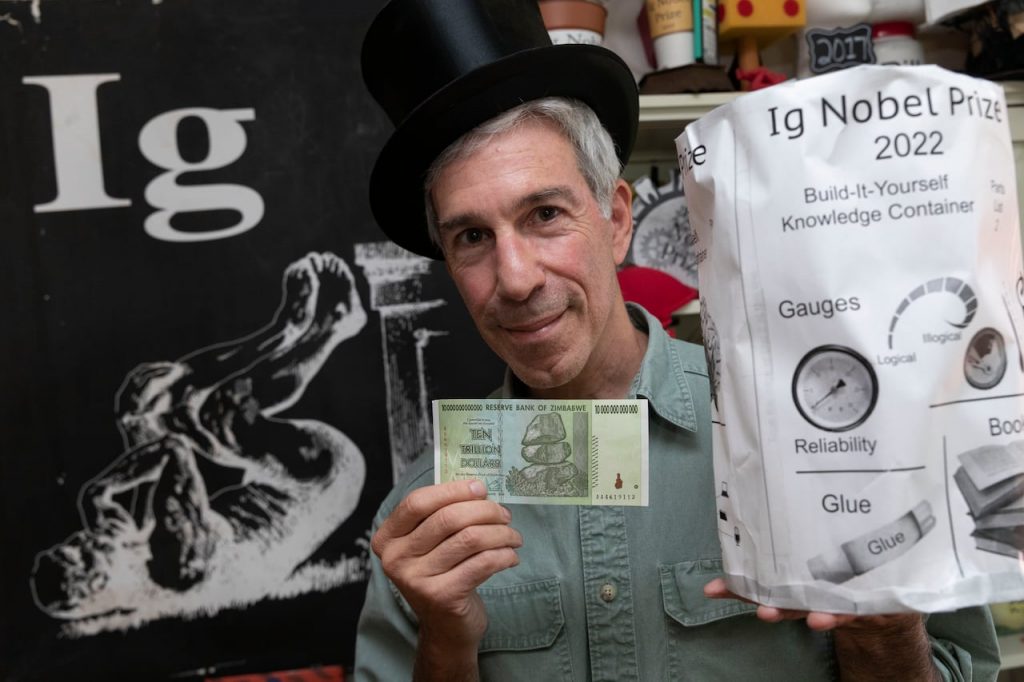A Glimpse into the Eccentric World of Ig Nobels

If the Nobel Prizes represent the pinnacle of human intellectual achievement, the Ig Nobel Prizes honor the unusual, the humorous, and the odd side of scientific discovery. But don’t be fooled, beneath their eccentric surface, these prizes frequently spotlight groundbreaking work, propelling us towards new frontiers of knowledge while making us chuckle along the way. In the heart of the 21st century, the Ig Nobel Prize has risen in prominence, honoring some of the most quirky, yet impactful studies and innovations.
Ranging from research involving alligators on helium to living as a goat, the Ig Nobel Prize is the epitome of imagination and creativity. As we journey through some of the most memorable laureates, we’ll come to appreciate the profound message of the Ig Nobels: to first make people laugh, and then make them think.
From Levitating Frogs to Living as a Goat
One of the earliest laureates in the 21st century, Andre Geim, was awarded the Ig Nobel Prize for Physics in 2000 for his levitating frogs experiment, using magnetism to defy gravity. This whimsical yet profound research underscored the mysterious and often counterintuitive nature of physics.
Fast forward to 2016, when Thomas Thwaites bagged the Ig Nobel Prize in Biology. He lived as a goat in the Alps for several days, an experience that gave unique insights into the human tendency to seek a simpler life, and also the intricate societal structures of goat herds.
The Science of Pizza and Alligators
The past two decades have also seen laureates exploring the culinary and animal kingdoms with scientific rigor. In 2019, Silvano Gallus was awarded for demonstrating that pizza might protect against illness and death—if the pizza is made and eaten in Italy. This research added a humorous yet fascinating perspective to the ongoing discussion about the Mediterranean diet and its health benefits.
On the wilder side of things, the 2020 Acoustics prize went to a team who made an alligator bellow in an oxygen-rich chamber resembling Mars’ atmosphere. They aimed to investigate if reptiles could vocalize in different atmospheres, potentially aiding in the search for extraterrestrial life.

Scrutinizing Daily Life
Many Ig Nobel laureates have brought our attention to the peculiarities of everyday life, presenting them in a novel light. In 2005, Gauri Nanda received the Economics Prize for inventing ‘Clocky’, an alarm clock that runs away to get its owner out of bed.
Similarly, in 2012, the Medicine Prize was awarded to Emmanuel Ben-Soussan and Michel Antonietti for advising doctors on how to minimize the chance that their patients will explode during colonoscopies, a humorous but crucial contribution to patient safety.
Beyond the Laughs
While the Ig Nobel Prizes are often met with laughter, the importance of these seemingly absurd studies shouldn’t be underestimated. They encourage us to think differently, to question and explore the world in unorthodox ways.
As we continue to navigate the 21st century, these out-of-the-box ideas, captured by the Ig Nobel Prizes, may well be the catalysts for scientific breakthroughs. After all, in the intersection of humor and discovery, lies the essence of human innovation. Who knows what the next round of Ig Nobel Prizes will bring to the table?
